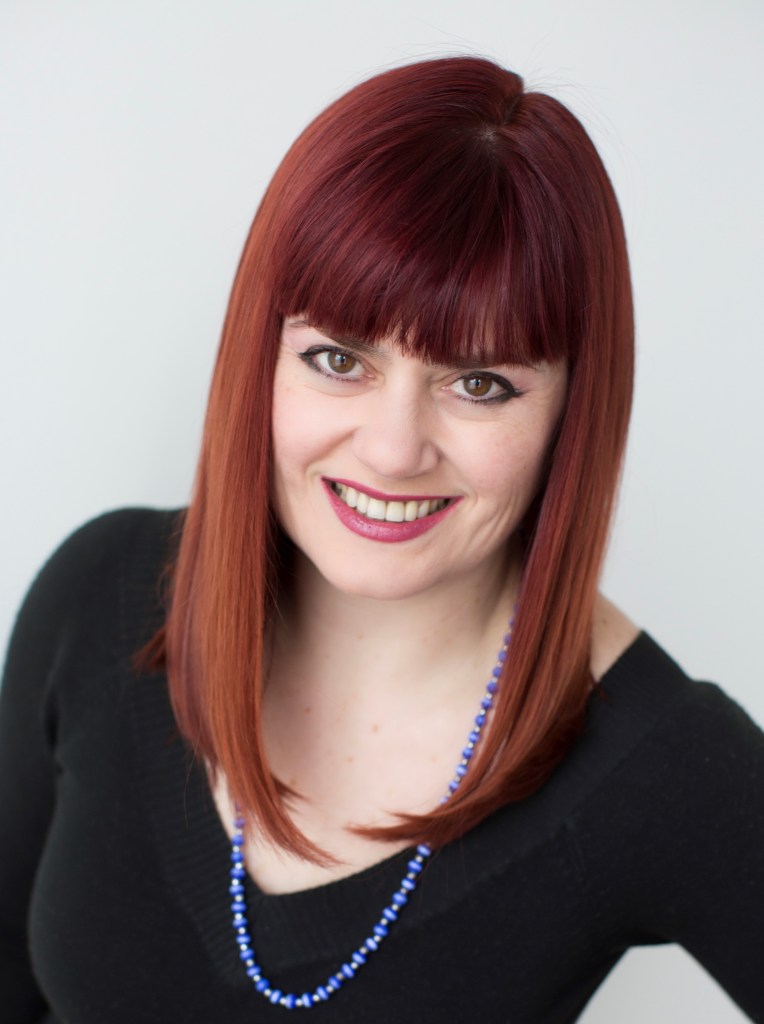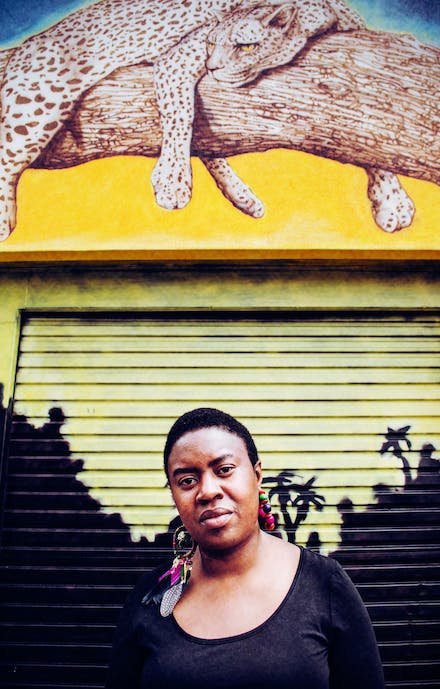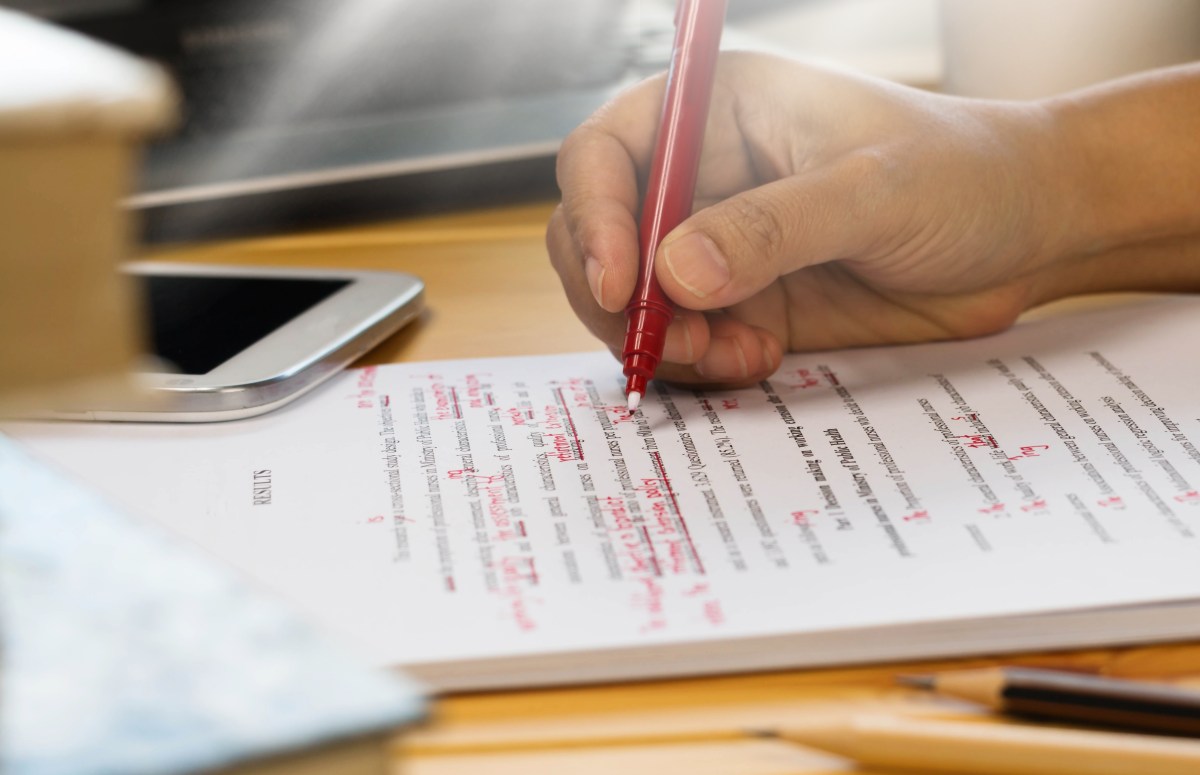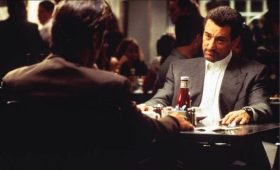Consider: you’ve just had your first or latest book accepted by a publishing house (congratulations!) and you’ve been assigned an editor to finesse the manuscript into publishable form. Or you’re a newbie editor who’s at the start of your career and wanting to know how to navigate the potentially tricky conversations with writers who are understandably a little protective about their words.
ArtsHub has gathered voices on both sides of the publication divide to offer some tips on how to successfully manage the writer-editor relationship.
Top tips from editors
Jo Lyons, an in-house editor at Sydney University Press, who’s worked for Allen & Unwin and Pan Macmillan Australia and has edited hundreds of books and projects across different genres, emphasises the need to build a rapport with the writer. ‘They want to know that the work they’ve spent so much time on, perhaps years, is in good hands,’ says Lyons. ‘They may be a first-time or seasoned writer, but for most it is still a huge deal to hand their writing over to someone for review or editing.
‘The editing process will require consideration and sensitivity and, if you’ve built a good rapport, it should be easier to navigate issues or tight deadlines together. Also, a sense of humour can go a long way!’
Her first piece of advice is Hippocratic in manner. ‘The first rule of thumb: do no harm. If you’re not sure about making a particular edit, best to leave it – especially be careful not to interfere with an author’s meaning or voice.’
Due care is also recommended when it comes to communication. ‘When sending an edit to an author, offer positive feedback on the manuscript, outline your approach to editing, showing the thought that you have put into the work, and make clear that your edits are suggestions only – the author needs to be happy with how the book reads,’ she adds.
Lyons also recommends a quick telephone call to defuse potentially problematic issues instead of relying on endless streams of emails.
Karen Crombie has lost track of the number of books she’s cast her editorial eye over, but her CV includes working for the late Queen at Buckingham Palace. ‘This really honed my eye for detail and gave me an amazing lesson on how important it is to have several different people check any document before it goes out into the world,’ she tells ArtsHub.

Her primary advice first of all is to make sure the fit is right between writer and editor. ‘Always have a conversation about the kind of book/document/article it is and the writer’s intended audience,’ she says. ‘If it’s clear that you’re not the best person for the job (I once refused a job for a highly technical book), then it’s better to suggest another editor.
‘Understanding expectations about deadlines and who their ideal reader is ensures you’re both on the same page and reduces misunderstandings.’
Crombie says it’s vital to allay fears and misconceptions about editors wielding a big red pen for correcting errors. ‘I’m your ally and I am just as keen as you to see your book succeed. I’m here to polish your work into the best shape it can possibly be. I’ve worked with authors who are dyslexic and writers that have English as a second language who’ve apologised for their spelling and grammar – I assure them that this is not an issue.
‘What’s important is whether they have a great story and how well it’s told. Sometimes I work on books where I am the first person who has been trusted to read the manuscript and it’s important to me that authors feel confident that their baby is in a safe and careful pair of hands.’
For veteran editor Nadine Davidoff, who has extensive trade publishing experience, it’s all about paying close attention to the text: So much of an editor’s job is working in the gap between the writer’s intention and what is on the page.
‘So listening to the whispers behind the writing, the silences in the text and identifying the gaps is so important,’ she says. Be very alert and switched on during your first encounter with a manuscript. You’ll never have such fresh eyes again.’
Editor Nadine Davidoff
Davidoff also recommends asking pertinent questions. ‘The best editorial outcomes emerge when an editor asks a concise question and the author finds a way to address it in a style that’s entirely their own. Offer specific statements rather than generalised ones because the latter have limited value when helping a writer sharpen and elevate their writing.’
What do the writers think of editors?
Dr Lee Kofman is the author and editor of eight books in Hebrew and English, most recently The Writer Laid Bare: Emotional honesty in a writer’s art, craft and life and has worked with numerous editors across all her books.
Kofman think it’s a privilege ‘to have someone care deeply about something I just spent weeks, months or years working on in solitude’ and her advice for writers is ‘to be humble and open-minded’ at editorial suggestions, but also to ‘fight for the things that matter to you’.
Edwina Preston, writer and musician, has published three books. The latest is Bad Art Mother. Her advice to writers worried about their manuscripts being manhandled aligns with Kofman’s view. Preston too, advocates humility, but recommends are ‘not so humble that you don’t sometimes stick to your guns. You will know when an edit is not-negotiable’.

Maxine Beneba Clarke, who writes poetry, fiction, non-fiction and children’s books, stresses the need for trust in an editorial relationship. ‘Read work they’ve edited before or ask them (or the publisher, if that’s too awkward!) what books or pieces they’ve worked on before… I think it’s really difficult to recover trust in an editor where you’ve worked with them in the past and had a bad experience or had the work published and realised there’s a major error they didn’t catch.
‘The best editors know their areas of weakness. For example, they may say, “I’m really concerned about the geographical parts of the work because I’m not familiar with the country.” In which case the conversation is at least open and honest and you can engage someone else to do an additional reading.
‘Some of the best results I’ve had are where a manuscript has come back riddled with queries and suggestions and I may have only agreed with 20% of them but that 20% resulted in a real focusing and tightening of the work.’
What happens when there is disagreement in the writer-editor relationship?
Lyons advocates picking your battles. ‘If it’s a style issue, or even sometimes grammar, you can try to push for edits or let it go depending on what it is. Bigger issues include things like needing to bring content more into line with policies or protocols (for example, editing for inclusivity or to follow your organisation’s Indigenous Cultural and Intellectual Property protocols). In these instances, a face-to-face meeting is best to discuss the issues and handle them as diplomatically as possible. ‘
‘A long time ago I had an author absolutely refuse to take on board my edit before; in the end, I let them do their own edit and I followed up with a light proofread. What can you do! But in my experience this is highly unusual and most authors are grateful to have an editor.’
Read: So you want my arts job: Bookseller
Crombie reminds us that the author has the final decision, though adds, ‘Consistency is very important and correct spelling, of course. Style is a lot more subjective. If an author is insistent upon including errors that have already been flagged, that’s their choice, but I’d ask that my name was not listed as editor on the book. This is pretty rare, however!’
Both Preston and Clarke recommend the importance of not being immediately defensive and taking a step back from any editing criticisms.
‘I think there is a way an editor can get the best out of you, and a way that they can really piss you off, and I’ve experienced both,’ says Preston. Something to remember though is that sometimes the edits that really piss you off are the ones you need to think about in a considered way. They’ve struck a nerve for a reason and are worth looking at again.’
Clarke adds, ‘Your response is always to protect your baby from criticism, but taking a few days to consider feedback can be good. A brutal edit may actually be the best one for your work.’





